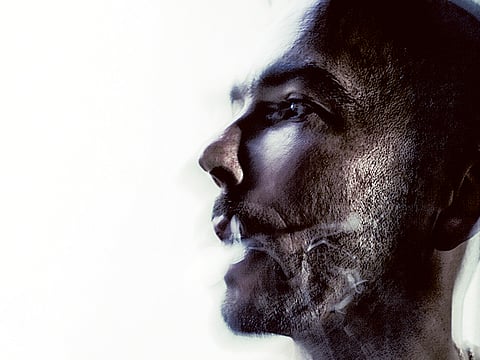UAE loses Dh5.5b to drug addiction per year
The economic cost of drug addiction in the UAE each year amounts to Dh5.5 billion

Abu Dhabi: The economic cost of drug addiction in the UAE each year amounts to Dh5.5 billion, according to a senior public health official.
The financial losses were calculated based on a 2012-15 study carried out by the National Rehabilitation Centre (NRC) in Abu Dhabi with the help of the UN Office for Drugs and Crime, in addition to the participation of 20 departments and universities inside the UAE.
Dr Ali Hassan Al Marzouqi, Director of General Health and Studies at NRC, told Gulf News that these figures take into account a number of factors, such as losing a skilled person from society, losing their job, and then having to go find another person to replace them.
“Added to this is the high medication costs to treat the addicted person; together, it adds up to a lot of money,” he said.
The NRC was established in May 2002 as a leading regional centre in the prevention, treatment and rehabilitation of cases relating to drug and alcohol addiction.
Since 2002, it has registered 2,400 cases, of which 75 per cent of the people asked for the treatment themselves, while the other 25 per cent were brought in by the Ministry of Interior.
“In the first six months of 2002, we had only one patient because society was not ready to deal with this issue. Now, we have 78 beds, and we have almost finished building our new centre, which will have 169 beds.”
The majority of cases the centre receives involve addicts in the 20-30 age group. Dr Marzouqi pointed out that there were a few cases of 13-14 year old patients, or patients above 60 years of age.
Apart from treatment, NRC emphasises patient follow-up. This year, it expects to start a new programme to monitor patients for five years once they leave the clinic. As part of the centre’s follow-up, it will also check how the recovered patient deals with their new life and society.
When gathering research, the centre carries out surveys on the issue by contacting the security section of Ministry of Interior to check the number of deaths caused by narcotic use. All the NRC’s findings are then handed over to the government.
“At the moment, we are looking to establish a national observatory for drug use in the UAE. We also hold seminars to train our staff because we want to have the most capable, and well-trained staff, to help the patients,” he said.
Apart from the treatment, the NRC is also emphasising on patient follow-up. This year, the NRC expects to start a new programme, and as part of this study, it will follow and monitor a patient for the next five years once they leave the clinic. As part of the centre’s follow-up, it will also check how the recovered patient deals with their new life and society.
“From our studies and research, we found that many drug addicts are school students. So we signed an agreement with the Abu Dhabi Education Council (Adec) to help train social workers on how to detect when a student is at the initial stages of drug use.
“We have so far finished training 150 teachers and social workers to monitor the symptoms of drug use and how to deal with such cases,” he said.
According to Dr Al Marzouqi, varying circumstances can lead a person to drug abuse. Among the main common causative factors are negative influences of peers.
Other reasons that potentially drive people to drug abuse is having too much free time along with the absence of positive goals and coming from a broken family, he said.
Even the desire to experiment or do something different can push a person on to this path, he said. “It’s like an adventure for them.”
Dr Al Marzouqi advised families to be alert to signs that their children, or even adults, are using drugs. They should keep an eye on their normal behaviour as opposed to sudden altered behaviour, for example, in their eating or sleeping patterns, and this change should not be taken lightly.
“There are other indicators, such as if they start performing badly in their studies. If their behaviour starts to change for the worse, or if they suddenly change their group of friends, or if they start asking for a lot of money, [parents] should look deeper into the issue,” he added.



